FOOTBALL
Women lead the charge as SA’s men’s soccer stagnates
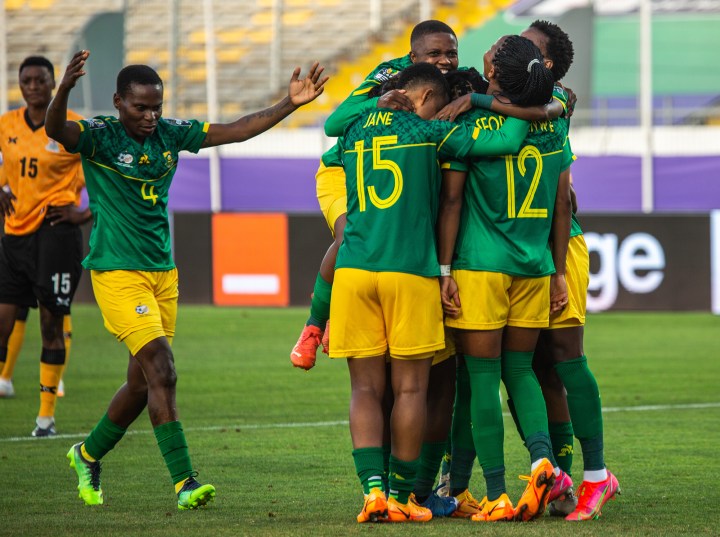
While Bafana Bafana and the male game in the country have been on a downward trajectory, the opposite is true of our female footballers.
It was reported in December 2022 that freight rail giant Transnet was departing as sponsor of the School of Excellence, a formerly acclaimed national football academy that has produced talents such as Steven Pienaar – who enjoyed a successful career in Europe playing for the likes of Ajax Amsterdam, Everton and Tottenham Hotspur.
The school also produced former Bafana Bafana players such as Bernard Parker and Daine Klate, as well as the likes of Bryce Moon and former Chelsea youth player Masilo Modubi.
In recent years, though, the pipeline for producing such talents at the academy has dried up.
Headed by the South African Football Association (Safa), the School of Excellence was established in 1994 to provide talented boys from rural and underprivileged communities with just as much opportunity to rise to football stardom as their more privileged counterparts.
In recent years, also hand in hand with the regression of the men’s national senior side, the School of Excellence has struggled to produce players in the mould of its aforementioned products.
Currently, some of the active players the academy can claim to have produced are promising Orlando Pirates starlet Boitumelo Radiopane and former Bidvest Wits midfielder Sibongakonke Mbatha.
Transnet reportedly felt that it was not receiving the return on investment to which it had become accustomed since its collaboration with the school and Safa began more than two decades ago.
“The relationship between Safa and Transnet is governed by what we call a trust deed. I’ve written to Transnet to say ‘you don’t just up and leave’, [as] the deed is very clear,” Safa CEO Tebogo Motlanthe told journalists in response to a question from Daily Maverick on the matter during a recent press briefing.
“So, we will be meeting with Transnet. Because, in terms of the same deed, [it has] an obligation, with us, to get a replacement sponsor. It’s not just a case of ‘I’m divorcing you, I’m leaving’, you still need to go to court to get the decree of divorce. So, we are going to have that roundtable meeting,” added Motlanthe.
During the same briefing, Safa confirmed that the latest contract of a long-standing partnership with South African Breweries (SAB) had expired at the tail end of last year and the two parties were currently negotiating a renewal.
SAB was a long-time sponsor of Bafana Bafana and had recently been financially backing the fourth tier of South African football – which was known as the SAB Regional League but will now be renamed after a new sponsor Safa will announce soon.
The association has not thrown in the towel with regard to maintaining its relationship with the beer company, though.
“That contract came to an end on 31 December 2022. We are in the process of renegotiating that contract. We hope and believe that we will continue with that partnership with [SAB],” Safa’s chief financial officer Gronie Hluyo told journalists at Safa House.
Onwards and upwards
While there are concerns about the stagnation of men’s soccer in the country – from developmental level upwards – women’s football continues to follow global trends and is on the up.
This is in spite of not having the luxury of a player conveyor belt like the School of Excellence, or the financial backing the male counterparts enjoy, as evidenced when South Africa’s senior women’s side Banyana Banyana clinched their maiden Women’s Africa Cup of Nations (Wafcon) in 2022.
That victory did not just come by way of fortune. Desiree Ellis’s team reached numerous Wafcon finals before lady luck finally favoured it.
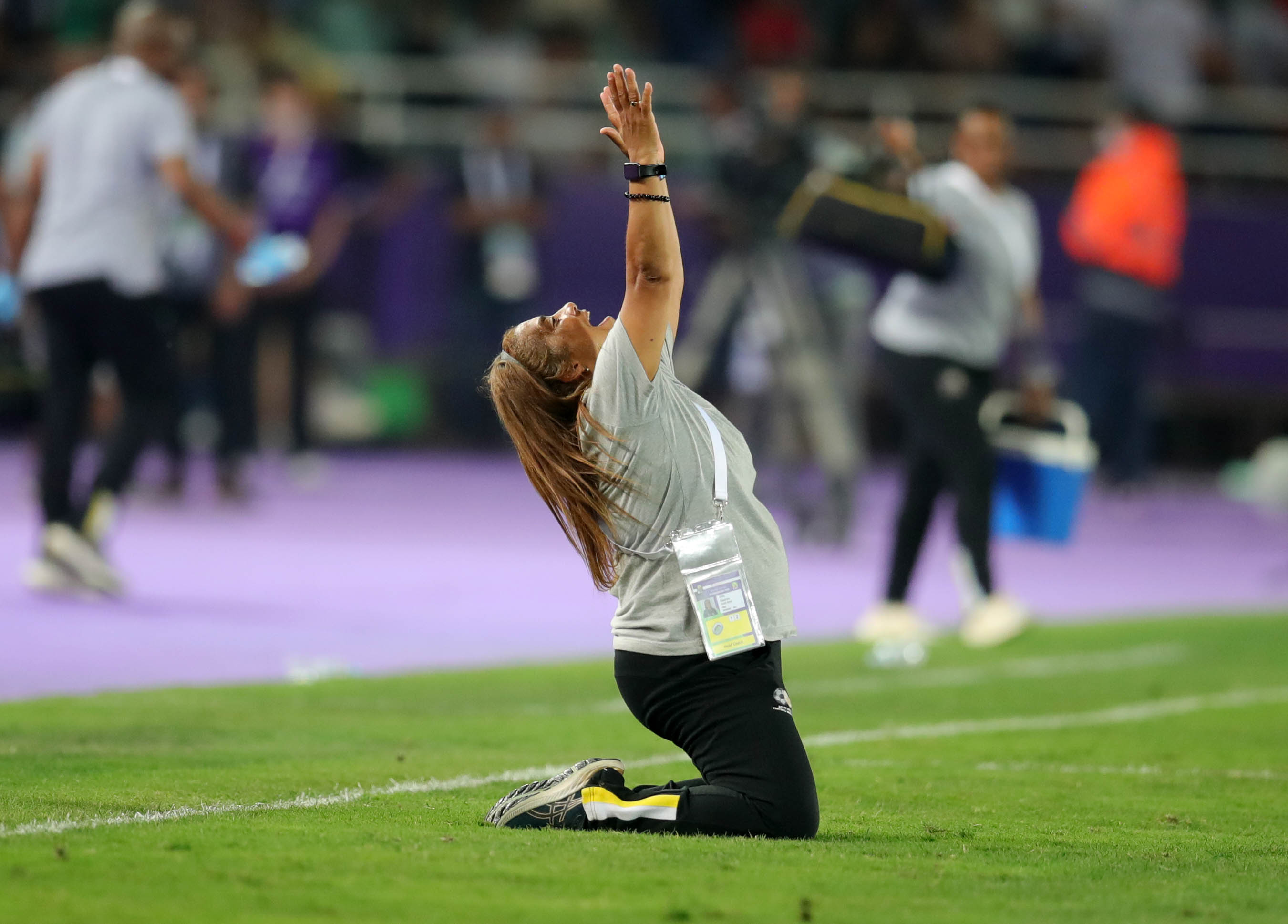
Desiree Ellis of South Africa Coach of the Year (Women) celebrates a victory during the 2022 Womens Africa Cup of Nations final match between Morocco and South Africa at Prince Moulay Abdellah Stadiumll, Rabat on 23 July 2022. (Photo: Samuel Shivambu / BackpagePix)
Their efforts have not gone unnoticed, though, as was confirmed by Safa’s Hluyo.
“There are a few potential sponsors we are talking to. We believe that within a short space of time we are going to be announcing these new sponsors,” Hluyo told journalists.
“We have one financial institution that we are talking to. They want to sponsor Banyana Banyana… We have a motor vehicle manufacturer that wants to sponsor Banyana Banyana as well. This, too, should be concluded soon. We have a drinks sponsor that we are talking to that wants to put funding into Banyana Banyana and some into Bafana Bafana,” added the Safa financial officer.
On top of these potential sponsors, South African women’s soccer also currently enjoys the support of brands such as Sasol – which has been a long-time sponsor of Banyana Banyana and the second tier of women’s soccer in the country, the Sasol League. The first tier is backed by Hollywoodbets.
Finances are undoubtedly crucial for functionality and success. As such, the current and future investment can only bode well for the future of women’s soccer in South Africa.
As for their male counterparts, unless there is a drastic change in fortunes, they will continue to decline.
Big dreams
Another huge difference between the men and women comes in terms of ambition. Former Bafana players such as Pienaar, Benni McCarthy, Lucas Radebe and Sibusiso Zuma could not wait to depart the country to play internationally.
The current crop is more comfortable being on home soil, at least according to former Bafana Bafana defender Nasief Morris – who made a name for himself with Greek giants Panathinaikos.
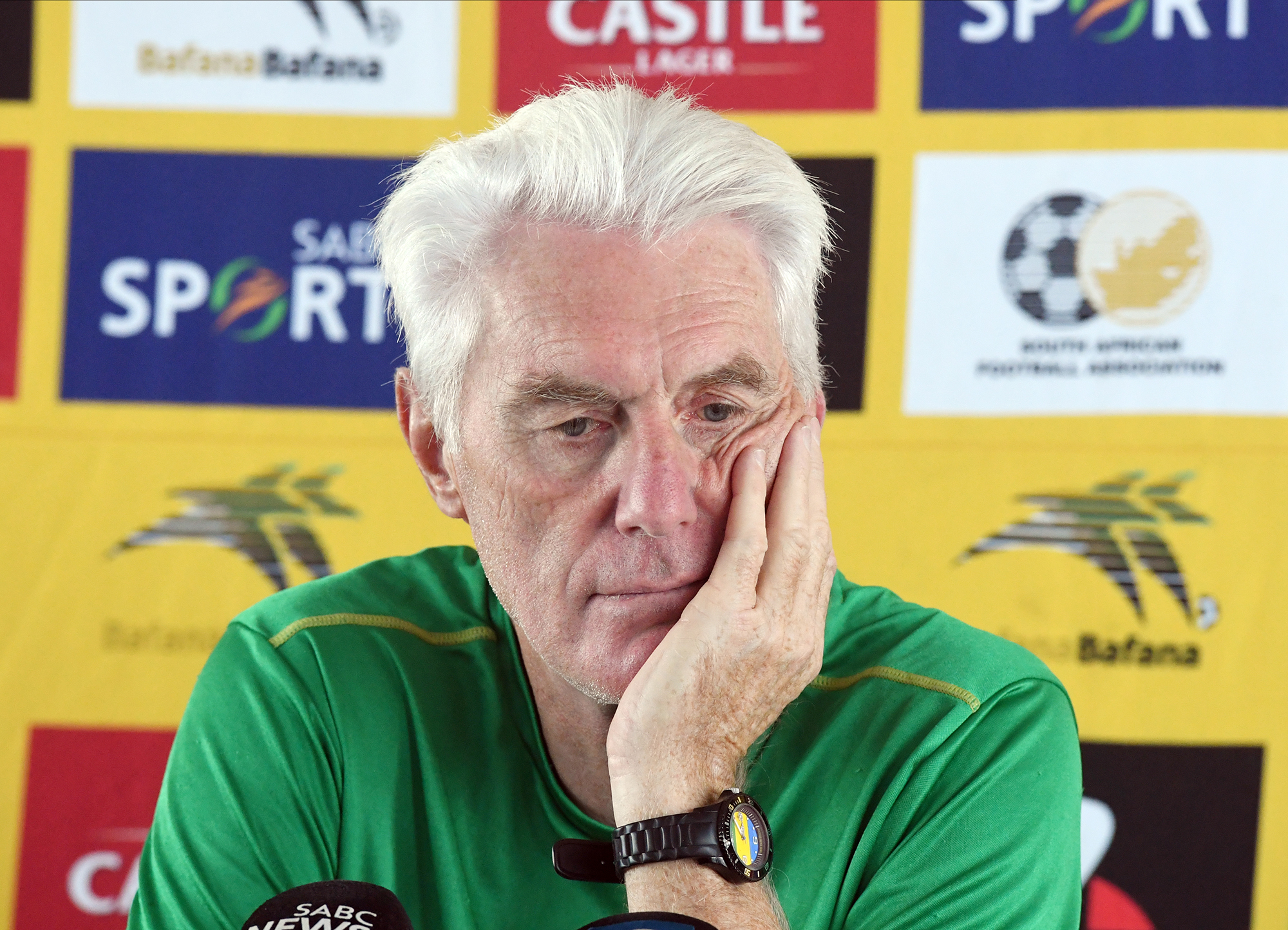
Hugo Broos (coach) of Bafana Bafana during the South Africa men’s national soccer team press conference at Dobsonville Stadium on September 19, 2022 in Johannesburg, South Africa. (Photo by Sydney Seshibedi/Gallo Images)
“Currently, everybody is comfortable in South Africa. Players nowadays don’t want to set their goals higher. If I look back at our generation, we used to aim for big things and we didn’t want to play in South Africa. We wanted to play in Europe against the best in the world,” he was quoted as saying by SowetanLIVE.
By contrast, the majority of the country’s best female soccer players ply their trade in international leagues, while some still on home soil have dreams of jetting off. DM






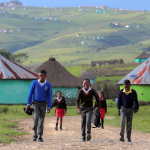
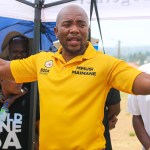











Comments - Please login in order to comment.